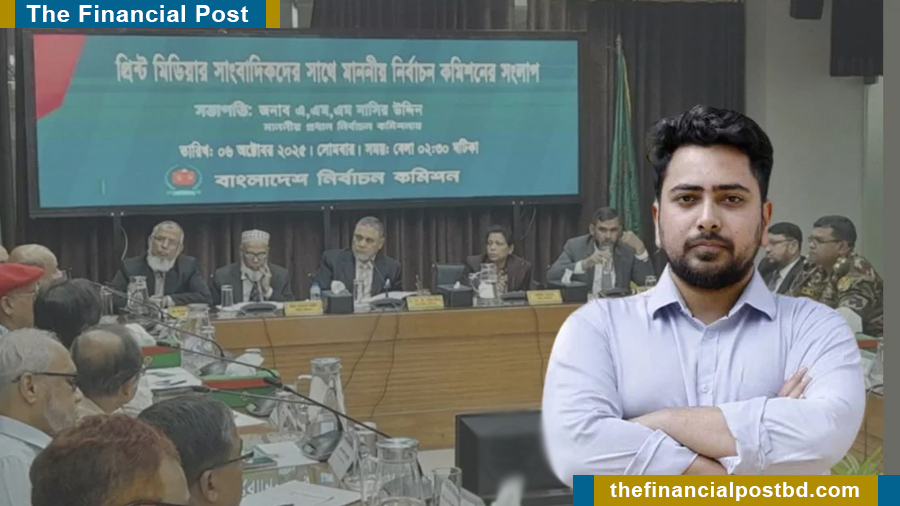
| LATEST NEWS: |

The Jatiya Nagorik Party (NCP) Convener Nahid Islam has raised serious concerns over the impartiality of the Election Commission, calling for its reconstitution ahead of the upcoming parliamentary elections.
Speaking to reporters after a meeting with Chief Adviser Professor Muhammad Yunus at the Jamuna State Guest House on Wednesday evening, Nahid said that the constitutional body lacks both neutrality and transparency.
“We’ve expressed our concerns clearly,” he said. “The process of forming the Election Commission and its current conduct do not reflect the independence expected of a constitutional institution. It is failing in its duty to ensure a level playing field.”
He alleged that certain political parties are receiving preferential treatment, undermining public trust. “A free and fair election is impossible without an impartial Election Commission,” he warned. “If the polls lack credibility, the responsibility will fall on the government. At this stage, reconstituting the commission is essential.”
Nahid Islam welcomed recent actions by the International Crimes Tribunal, including the summoning of several military personnel in connection with atrocities during the July uprising.
“This is a positive step. We appreciate the government and the tribunal for advancing justice,” he said.
However, he urged authorities to act swiftly on over 800 cases filed by families of martyrs and the injured nationwide. He expressed concern that some accused have been granted bail while threats against victims’ families persist.
“The government must present a clear roadmap for these cases—on investigation, prosecution, and protection of witnesses,” he emphasized.
The NCP leader clarified that his party did not sign the July Genocide Charter, though it supports its core principles. “We’ve communicated our stance to the government and the Election Commission. We will endorse the charter only when we are assured of its genuine and effective implementation,” he said.
Nahid Islam also criticized recent administrative transfers, suggesting they are driven by political considerations rather than merit.
“We’re hearing that DCs, SPs, and other key officials are being assigned based on lists prepared by political parties—with backing from within the Advisory Council itself,” he said. “This compromises the neutrality of the caretaker government.”
He called on the Chief Adviser to address internal conflicts of interest and ensure that state institutions remain free from partisan influence in the run-up to the November elections.
“Neutrality isn’t just symbolic—it must be practiced at every level,” Nahid Islam concluded.
FP/MI